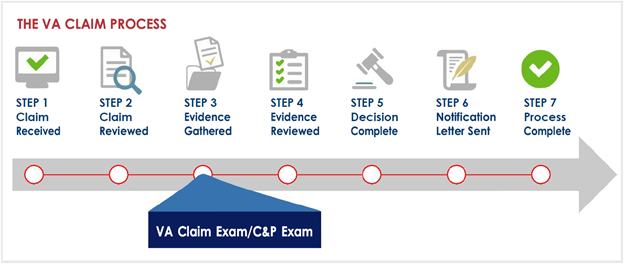Receiving a denial for a VA disability claim can feel like a dead end. After putting in significant time and effort to submit your application, being told “no” can be discouraging. However, a denial isn’t final—it’s a point where many veterans choose to appeal. But how likely is it that an appeal will succeed?
Let’s break down what the data says.
VA Disability Appeal: By the Numbers (FY 2020)
Every year, the VA’s Board of Veterans’ Appeals releases a report that outlines appeal outcomes. These outcomes are split between two systems:

- Legacy Appeals: The older system in place before February 2019
- AMA Appeals (Appeals Modernization Act): The newer, streamlined process introduced after February 2019
Legacy Appeals:
- Total decisions: 85,451
- Approved (Allowed): 33.8%
- Remanded (sent back for more evidence or clarification): 40.6%
- Denied: 20.3%
AMA Appeals:
- Total decisions: 17,202
- Approved (Allowed): 37%
- Remanded: 28.2%
- Denied: 27.6%
At first glance, success rates might appear modest. However, a deeper look reveals important patterns, particularly when factoring in representation.
Representation Matters
The same FY 2020 report reveals how the appeal outcome shifts depending on whether the veteran had representation.
Outcomes Without Representation:
- Allowed: 26.2%
- Remanded: 39.4%
- Denied: 29.2%
Outcomes With Attorney Representation:
- Allowed: 40.9%
- Remanded: 38.5%
- Denied: 14.8%
These numbers indicate that veterans with legal assistance or organizational representation tend to fare significantly better than those who navigate the process alone. Notably, they experienced higher approval rates and fewer outright denials.
Why Appeals Get Remanded
A large portion of appeals don’t result in immediate approval or denial—they’re remanded. This means the VA needs more evidence or clarification before making a final decision. While not the end of the road, a remand does extend the process. It’s often an opportunity to strengthen the claim with new medical records, service documents, or expert opinions.
Is an Appeal Worth It?
The appeals process can be long and demanding, especially under the legacy system. However, AMA reforms aim to reduce wait times and simplify options, offering paths such as:
- Higher-Level Review
- Supplemental Claims
- Board Appeals
Given the approval rates—especially with proper support—an appeal remains a viable and often necessary step for veterans seeking the benefits they’ve earned.
Final Thoughts
Appealing a VA disability denial isn’t easy, but data from recent years suggests that persistence pays off—especially with the right approach and preparation. Understanding the numbers can help set realistic expectations and guide veterans in choosing the appeal path that’s best for them. While the process may require time and patience, many veterans have ultimately succeeded in turning a denial into a well-deserved approval.


